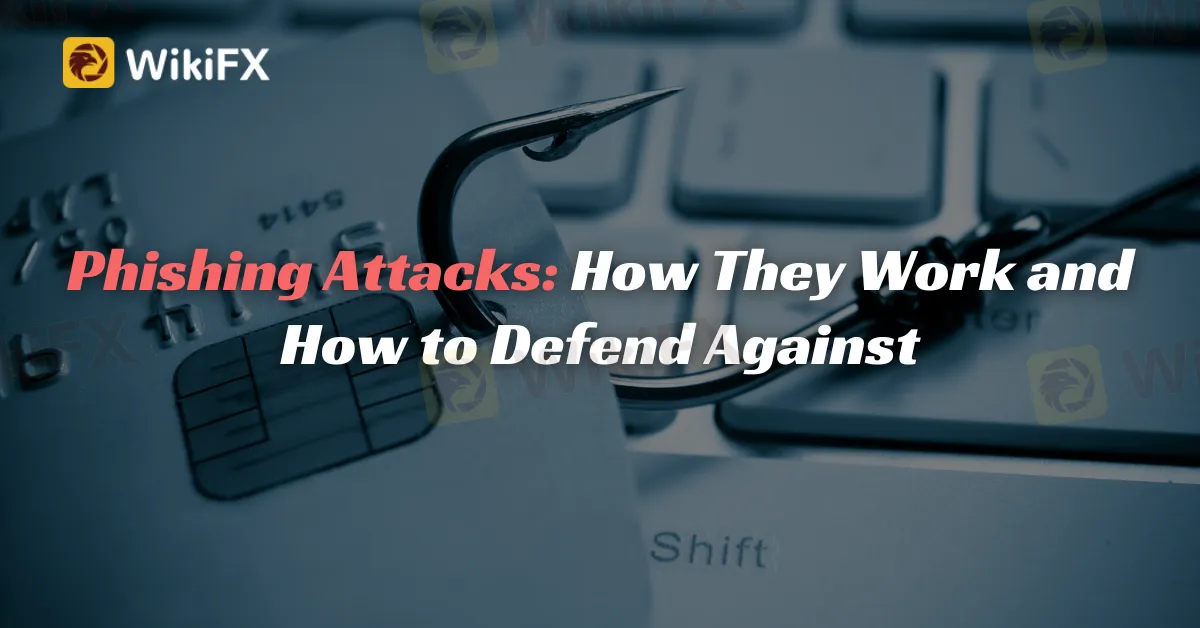简体中文
繁體中文
English
Pусский
日本語
ภาษาไทย
Tiếng Việt
Bahasa Indonesia
Español
हिन्दी
Filippiiniläinen
Français
Deutsch
Português
Türkçe
한국어
العربية
Phishing Attacks: How They Work and How to Defend Against
Abstract:Phishing is a type of online scam where attackers try to trick people into giving them sensitive information such as passwords, financial information, or personal details. They often use fake emails or websites that look legitimate in order to try to fool people into entering their information. Phishing attacks can be carried out through email, SMS, social media, phone calls, and other methods.

Phishing is a sort of internet fraud in which attackers attempt to deceive victims into providing sensitive information such as passwords, financial information, or personal information. They often utilize bogus emails or websites that seem official in order to trick victims into submitting their information. It is critical to exercise caution when receiving emails or communications from unknown sources and to avoid clicking on links or downloading files from untrusted sources. If you get an email or communication that seems questionable, you should confirm the sender's identity before proceeding.
WikiFX always tags the broker's status depending on their authenticity. All of the information required to determine if the individual who called you is a legitimate employee of a legitimate internet broker. This is one of the simplest and most beneficial methods WikiFX provides to assist people to avoid being phished or defrauded.
Phishing attacks may be carried out in a variety of ways:
Email phishing occurs when scammers send false emails that seem to be from a reputable firm or organization. These emails may include links to bogus websites or malware-infected files.
SMS phishing occurs when scammers send text messages with links to phony websites or request personal or financial information.
Scammers construct bogus social media profiles or send private messages with links to false websites or demand personal information.
Phone phishing occurs when scammers contact and pose as a representative of a reputable firm or organization, requesting personal or financial information.

To protect against phishing attempts, be cautious when receiving emails or messages from unknown sources, and avoid clicking on links or downloading files from untrusted sources. If you get an email or communication that seems questionable, you should confirm the sender's identity before proceeding. Use strong, unique passwords for each of your accounts, and activate two-factor authentication wherever feasible. Be suspicious of emails or communications that create a feeling of urgency or need you to respond immediately, and use caution while purchasing online or sending personal information to strangers or organizations.
Other ways to defend oneself against phishing attempts are as follows:
When receiving emails or communications from unknown persons or groups, be careful, particularly if they include links or attachments.
Look for indications that a website is not real, such as misspellings, an unusual location, or a lack of security precautions such as HTTPS.
For each of your accounts, use strong and unique passwords, and activate two-factor authentication wherever feasible.
Be skeptical of emails or texts that generate a feeling of urgency or demand that you respond immediately.
Last words
Phishing is a severe problem that may lead to the loss of personal and financial data as well as the distribution of viruses. To protect yourself and your information against phishing attempts, you must be watchful and careful.
Stay tuned for more Educational news.
Download and install the WikiFX App from the download link below to stay updated on the latest news, even on the go.
Download link: https://www.wikifx.com/en/download.html

Disclaimer:
The views in this article only represent the author's personal views, and do not constitute investment advice on this platform. This platform does not guarantee the accuracy, completeness and timeliness of the information in the article, and will not be liable for any loss caused by the use of or reliance on the information in the article.
Read more

The Ultimate Guide to Automated Forex Trading in 2025
Modern markets are revolutionized by automated trading systems, which now execute 70-85% of all transactions. These advanced automated trading software solutions, commonly called trading robots or Expert Advisors (EAs), leverage algorithmic precision for automatic trading across forex, stocks, and commodities 24/7. By removing emotional interference and executing trades in microseconds, auto forex trading platforms create fair opportunities for all market participants. For those new to automated trading for beginners, these systems provide disciplined, backtested strategies while significantly reducing manual effort.

Anti-Scam Groups Urge Tougher Action on Fraudsters in UK
Anti-scam groups demand tougher police action on fraudsters as UK fraud rates surge 19%, targeting millions in a penalty-free crime spree exposed by a $35m scam leak.

Will natural disasters have an impact on the forex market?
The forex market is known for its rapid responses to global events, but the influence of natural disasters, such as earthquakes and typhoons, can be less straightforward. While headlines may scream about catastrophic damage and economic disruption, the long-term effects on currency values often depend on a blend of immediate shock and underlying economic fundamentals.

Philippines Deports 29 Indonesians Linked to Online Scam Syndicate in Manila
Online scam groups in the Philippines trick Filipinos into gambling and love scams, from Manila to Bacolod, causing trafficking and pain as police fight back.
WikiFX Broker
Latest News
How Crypto Trading Transforms FX and CFD Brokerage Industry
UK would not hesitate to retaliate against US tariffs - No 10 sources
FCA Warns Against 10 Unlicensed or Clone Firms
CySEC Warns Against 14 Unlicensed Investment Websites
Top Currency Pairs to Watch for Profit This Week - March 31, 2025
Will natural disasters have an impact on the forex market?
Philippines Deports 29 Indonesians Linked to Online Scam Syndicate in Manila
Navigating the Intersection of Forex Markets, AI Technology, and Fintech
Exposed: Deceptive World of Fake Trading Gurus – Don’t Get Fooled!
AI-Powered Strategies to Improve Profits in Forex Trading
Currency Calculator







